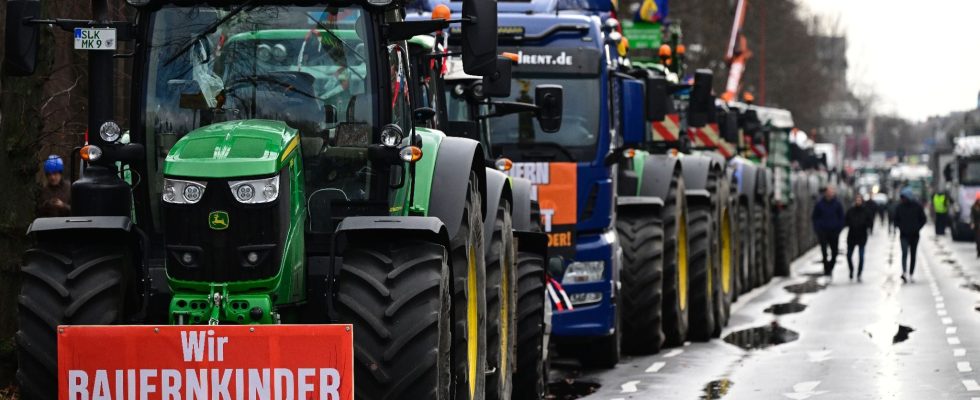Exit the Minister of Housing. Exit Transport. Two priority portfolios in the eyes of the French, but (temporary) victims of a tightened government, pending possible future appointments. In the new XV of France wanted by Emmanuel Macron, which would almost fit in a telephone booth, there is a ministry which has not disappeared: that of Agriculture and Food Sovereignty, still under the leadership of the rural Marc Fesneau. There is no question of destabilizing the peasant world, especially at a time when an agricultural malaise is sweeping Europe. After the Netherlands, Romania and Poland, it is Germany’s turn to be shaken by a tractor revolt. In question, the decision of Olaf Scholz’s government to end tax advantages linked to agricultural diesel. Faced with the revolt, the government nevertheless reversed course, agreeing to reschedule the measure until 2026. Too late, the fire in the German prairie continues to spread, testifying to the fed up of the people. respect for the government but also for Brussels, widely relayed by a watchful extreme right.
Five months before the European elections, the movement risks spreading. In France, anger is brewing in the countryside. Purchasing power at half mast, agricultural income reduced by charges, increasingly fierce foreign competition: the impoverishment of the “Ferme de France” continues, fueling concern. And as elsewhere, the forced march towards decarbonization is poorly received, as evidenced by the success of the “returned panels” movement, with its slogan “we are walking on our heads”, to protest against the inflation of standards.
Yes, we are walking on our heads when we know that one in two chickens in France is imported and we see the French agri-food surplus melting like snow in the sun. The French love farmers: in the latest Ifop barometer for West France, Two out of three of them admit to having a good image of themselves. And 57% say they are ready to pay more for their food products to guarantee them a decent income. That’s nice, but it’s less than in 2020 when they were 72%: since then, the surge in prices has eaten into the wallets of households, more inclined to favor cheap food. Which does not suit farmers, who have been told for years that they must move upmarket.
In Germany as in France, all the ingredients are there to fuel tensions. On Monday January 15, thousands of farmers on their tractors blocked the Brandenburg Gate in Berlin. This Tuesday, it is the turn of their French colleagues to parade in the center of Toulouse. Farmers’ unease could quickly find expression at the ballot box: according to the latest Elabe survey, 51% of farmers place the question of purchasing power and the fight against inflation at the top of the issues in the European elections, and 29% are say they are ready to vote for the Bardella list. Long considered wise, the peasant vote is in the process of radicalization.
.
